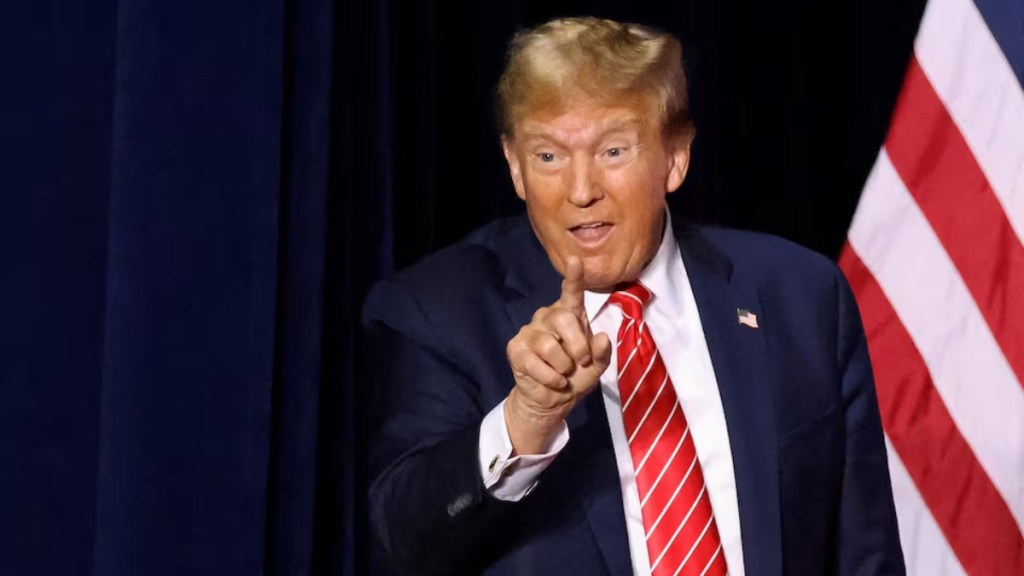United States President Donald Trump-led administration’s announcement to implement reciprocal tariffs starting April 2, is starting to impact the crop and chemical industry now. According to a report by Kotak Institutional Equities, India’s exports of organic and inorganic chemicals for the month of January 2025 fell 4.2 per cent/1.9 per cent MoM/YoY, while imports rose 9.7 per cent/36.9 per cent MoM/YoY. Further, US chemical production dropped by 1.2 per cent on-month in January 2025 due to the disruption caused by tropical storm Enzo but still stood higher by 3.2 per cent YoY on a 3-month moving average basis.
The US too is facing the impact. “The tariff war has resulted in a dent in crop prices in the US but may have helped corn prices perk up in Brazil. In the chemical industry as well, the tariffs will likely have a bearing on end-demand as well as prices, though it is still too early for impact assessment. In the backdrop of an already-weak demand environment in the past couple of years, the added disruption caused by a tariff war is probably the last thing the chemical industry needed,” stated the report by the brokerage firm.
The US tariffs, particularly those aimed at curbing China’s trade practices, could disrupt the chemical industry, potentially raising prices and impacting supply chains, while also creating opportunities for some Indian chemical companies.
Impact on chemical industry
The tariff threat is expected to reduce the competitiveness of Indian chemical products in the US market, potentially leading to decreased export revenues and also job losses within the sector. “Chemical railcar holdings—a measure of volumes—were up 4.2 per cent YoY for the week ended March 1 and have been on the rise for 8 of the last 13 weeks. Data from CEFIC shows that China’s chemical output grew a strong 9.1 per cent in 2024, far surpassing world output growth. Commentary by the European chemical industry for January 2025 remained downbeat, with demand weak and cost competitiveness challenged; however, Germany’s fiscal stimulus has lately kindled hopes of a demand recovery,” the Kotak report illustrated.
In terms of price trends, Kotak maintained that refrigerant prices remained firm in China, leading to continued increases in R32 import prices into India. Palm oil prices remain at elevated levels following India’s duty hikes. Caustic soda prices have recovered modestly. In contrast, prices of soda ash remain depressed, while phenol spreads have fallen sharply in India and also remain below decadal averages in the broader Asia region. Prices of agrochemicals remain generally soft, barring a few exceptions such as 2,4-D and cypermethrin. Competition from generics launched by suppliers such as UPL appears to be forcing pyroxasulfone prices downward. In the fertilizer space, ammonia import prices into India fell during the past month, whereas urea prices into the country increased significantly.
Tariff war weighs on crop prices
Per the analysis report by Kotak, futures prices of the three major grains—corn, soybeans and wheat—all fell 6-9 per cent in the US during the past month amid the tariff war with China. “In contrast, corn futures in Brazil rose 10 per cent, perhaps because Brazil is seen as a beneficiary of the US-China trade war. Crop prices are a key driver of agrochemical demand. Agrochemical major Bayer has guided to a “slow market recovery” in 2025, consistent with commentary by Corteva, which guided to flat industry revenues for the year. Kumiai has secured registration for the import of pyroxasulfone into India from Japan; also, PI’s appeal against the grant of pyroxasulfone registration to UPL has prompted a review by the regulator,” the report maintained. On the climate front, the expected heat wave in India during March-May may pose risk to wheat output. The IMD had predicted that India will witness one of its warmest March months on record. The wheat crop may be threatened by the exceptional heat impacting its yields. Also, bird flu has spread to nine states in India.
Any reciprocal actions by India, such as imposing tariffs on US agricultural imports, could disrupt domestic markets and affect local farmers.
What is the government doing?
In response to the looming tariffs, Commerce Minister Piyush Goyal recently traveled to the US for discussions aimed at mitigating the potential impact. The central government has expressed willingness to negotiate tariff reductions on certain industrial goods but remains protective of its agricultural sector to safeguard farmers’ interests, stated a Reuters report.
